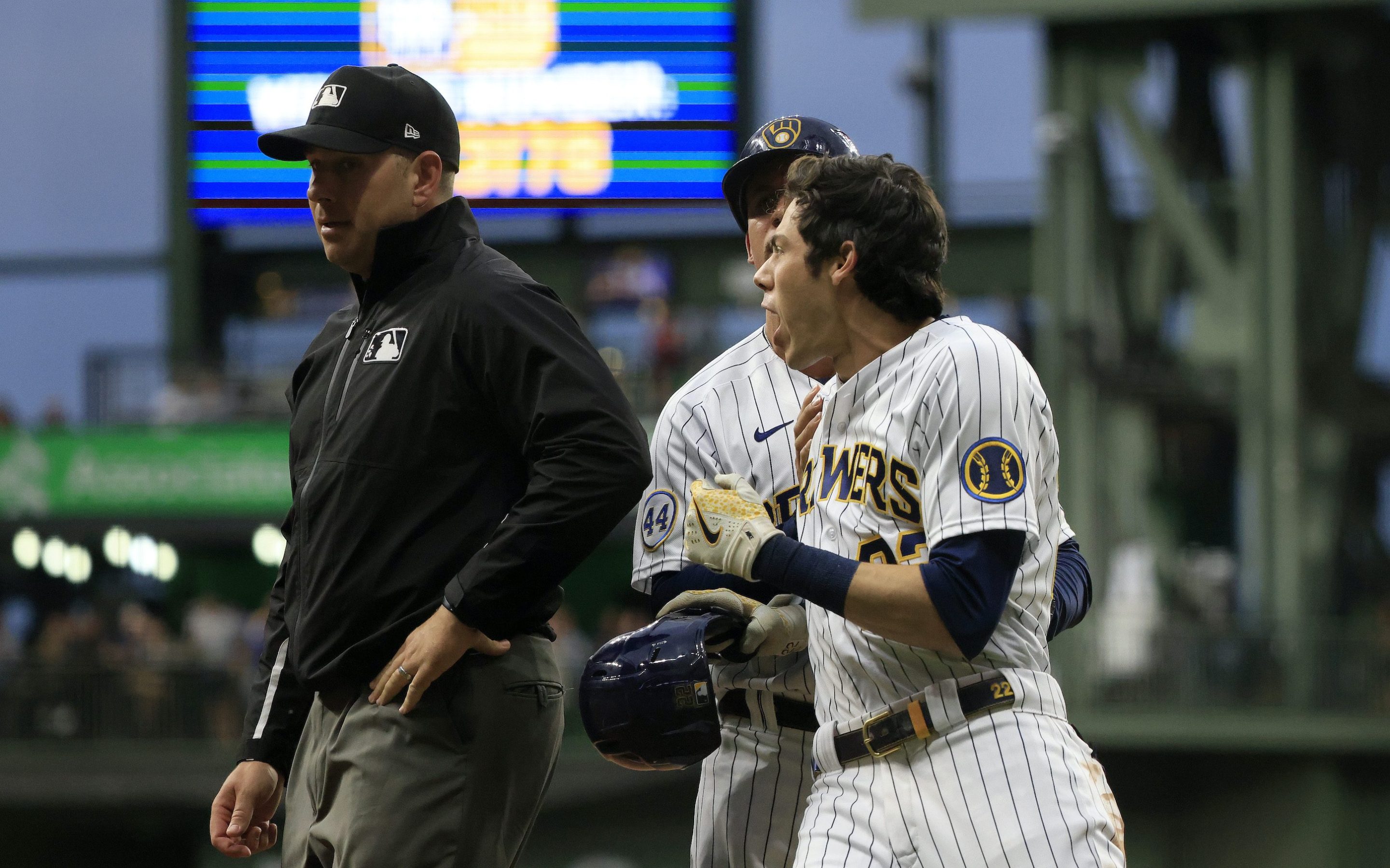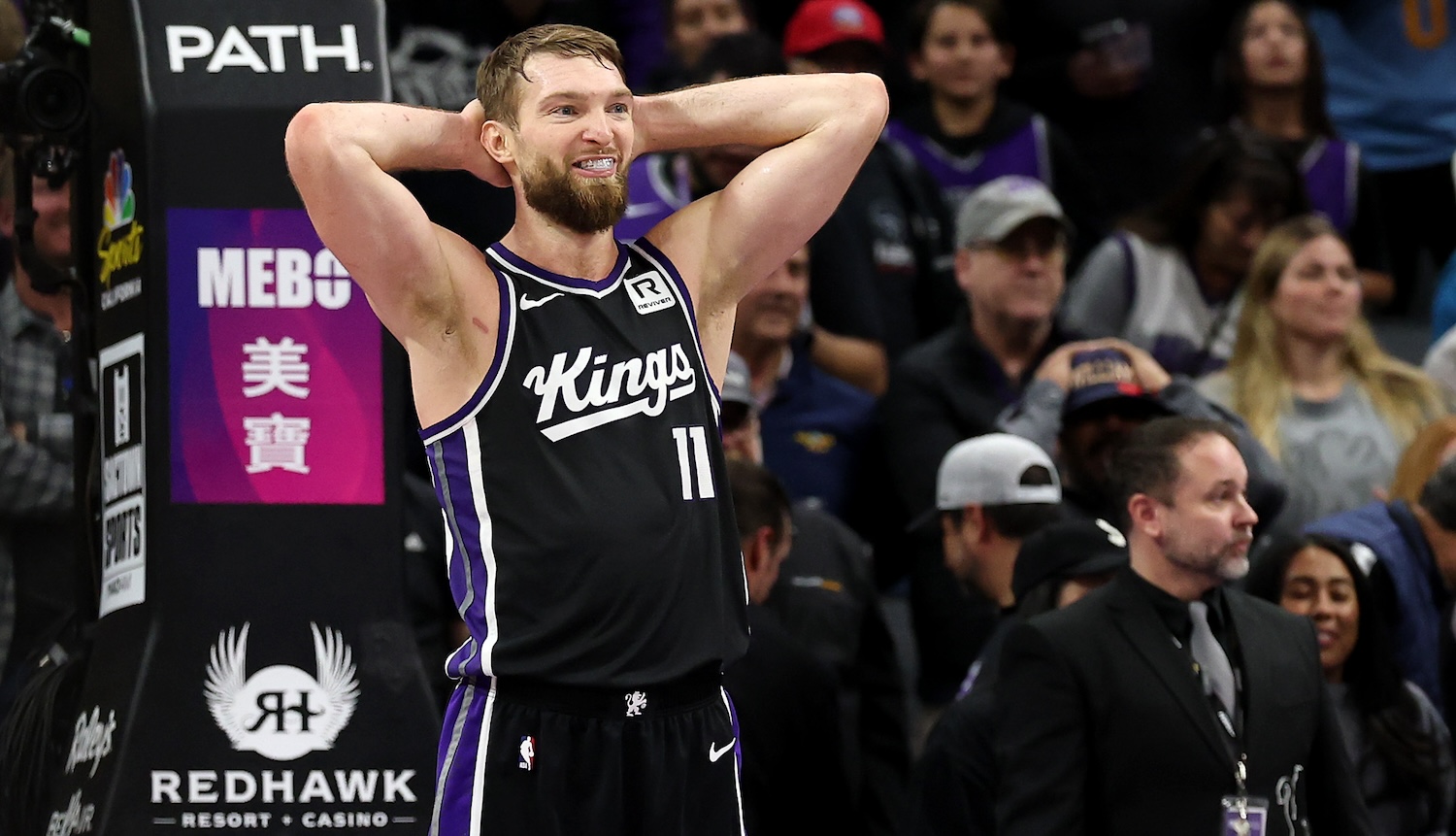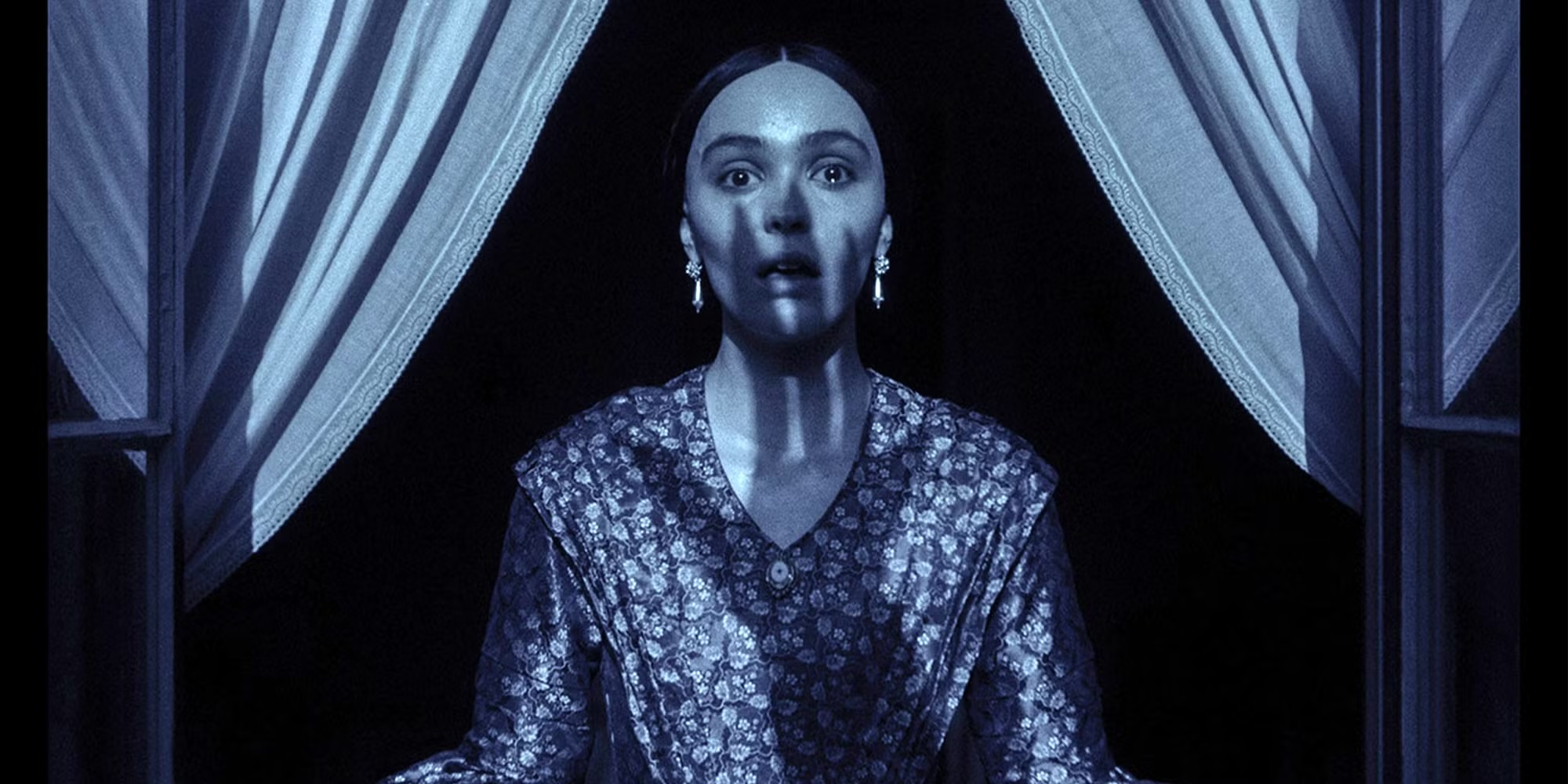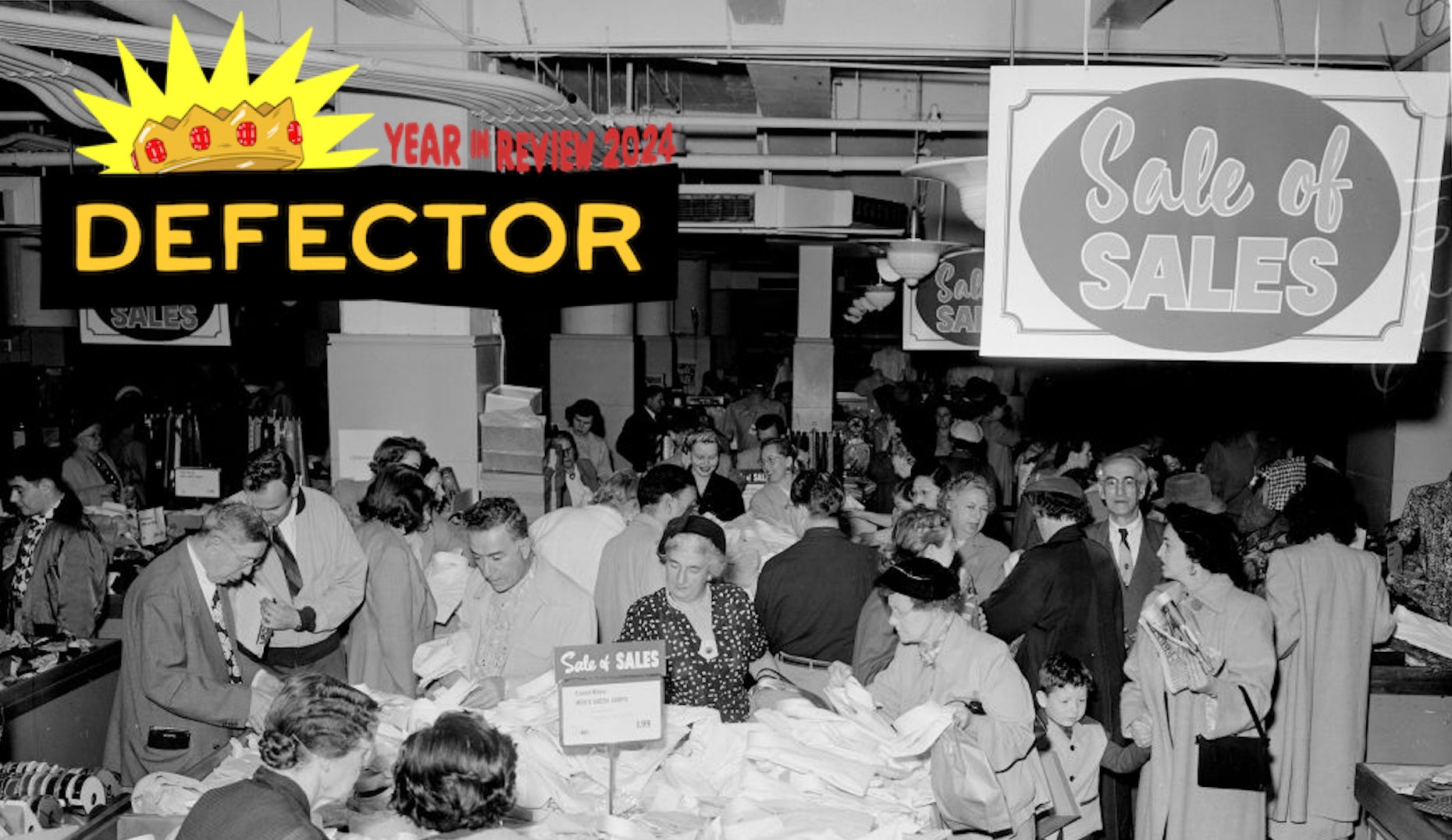The call that deemed Christian Yelich out in Saturday's game is a fun one—well, fun for me, because I neither play for nor hold any emotional attachment to the Milwaukee Brewers. Umpire John Libka made a defensible choice as it pertained to MLB's rulebook, but it pissed off a lot of people.
In the sixth inning of Reds-Brewers, Yelich laid down a bunt; pitcher Vladimir Gutierrez's throw to first base was well off the mark. First base coach Quintin Berry (remember that guy?) signaled for Yelich to take second, but the baseball took a fortunate bounce and Reds second baseman Jonathan India collected it quickly. India saw that Libka hadn't made a call on Yelich, who had run through first base and was still off the bag, so he jogged over and applied the tag. Libka ruled Yelich out, and the Brewers outfielder was apoplectic. "Are you fucking shitting me?" Yelich said, before he added in some "Fuck yous" and got tossed from the game.
Christian Yelich was NOT happy with that call & gets thrown out of the game.
— FOX Sports: MLB (@MLBONFOX) July 11, 2021
He was tagged out after a wild throw to first, and the umpire said that he made an attempt to go to second. Thoughts? pic.twitter.com/N59dLJdKx2
Obviously, a hitter can run through first base on a ball in play and remain protected, but Libka believed that Yelich had attempted to take second once he saw that Gutierrez's throw was wide. The umpire's call was made in real time, so instant replay had nothing to do with it, and it wasn't reviewable anyway. But it produces the question: What exactly is the minimum for an "attempt"?
The relevant portion of the rulebook is Rule 5.09(b)(11), which can be found on page 48, or page 59 of this PDF. Any runner is out when:
(11) He fails to return at once to first base after overrunning or oversliding that base. If he attempts to run to second he is out when tagged. If, after overrunning or oversliding first base he starts toward the dugout, or toward his position, and fails to return to first base at once, he is out, on appeal, when he or the base is tagged;
A few steps after overrunning first, Yelich saw Berry give him the sign and took one step left before he realized there was no way he'd get to second in time. The video shows his legs move from being outside the foul line to inside. (It doesn't matter that Yelich was in fair or foul territory here, just that he was moving in the direction of second base.) Is that one step an attempt? Libka thought so.
Berry deserves a little bit of blame here, because that's some underwhelming first-base coaching. While the overthrow would typically result in an extra base and just happened to take a lucky bounce for the Reds, the coach should've been quicker to pull Yelich away from Libka. If Berry had done so, maybe Yelich wouldn't have said enough to get ejected, and maybe the Brewers wouldn't have lost, 4-3.
Ump says Yelich attempted to go to second and calls him out, a breakdown pic.twitter.com/a0naeEquF8
— Jomboy (@Jomboy_) July 11, 2021
In the context of baseball umpires, and those who suck versus those who don't, Libka isn't the worst around. On May 7 of this year, he called an exceptionally consistent game between the Cardinals and Rockies, missing just one strike the entire day. Calling balls and strikes is different than picking up on the intricacies of a baserunner's legs as they reach first base, but Libka's not at the level of, say, Ángel Hernández. Yesterday's crew as a whole was all over the place, though. In the top of the sixth, home plate umpire Gabe Morales tossed Brewers manager Craig Counsell for arguing balls and strikes, and in the top of the eighth, third base umpire Doug Eddings ejected Reds first baseman Joey Votto for doing the same.
Yelich seemed to have cooled off a bit after the game, although he cited his lack of shoulder movement as a defense that he wasn't attempting to take second. Via MLB.com:
“I think we agreed to disagree about some things,” Yelich said of his ejection.
“I know I didn’t turn my shoulders,” Yelich added. “It was pretty much, in my mind, just stopping my momentum. There was no shoulder turn, in my mind, to go. I think there’s a lot of things going on there. Obviously, we didn’t agree on what happened. It is what it is.”
There's actually a recent, comparable example for Libka's call. In a June 18 game between the Mets and Nationals, Billy McKinney was in a position nearly identical to Yelich's. He made a little motion to second but stayed near first, and Josh Harrison applied the tag just to be sure. In that situation, first base umpire Adam Hamari ruled McKinney safe, but as this useful video from Close Call Sports explained, that was because Hamari wasn't looking at him. An umpire can't make a call on something they don't see, but there was a defensible argument for ruling McKinney out.
In Yelich's case, he was unlucky enough to be in Libka's field of vision. This call was definitely ticky-tack, and it feels safe to say that few people would have noticed or argued if Yelich had been ruled safe. It's surely not a satisfying part of baseball to see an umpire apply the letter of the law rather than the spirit, but Libka had justification for the call he made. Really, the winner here was Jonathan India, who smiled, fulfilled his responsibility, and walked away from it all.
Hey @JonathanIndia,
— Cincinnati Reds (@Reds) July 11, 2021
Just wanted to say you have a nice smile. pic.twitter.com/ezS04l9fml





